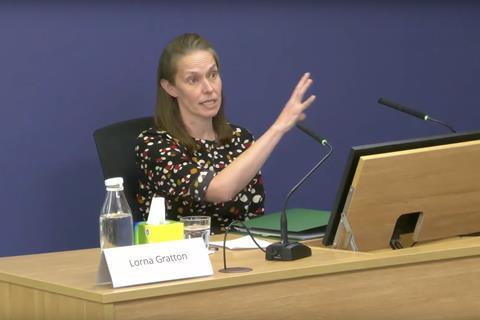A ‘cultural clash’ involving commercial lawyers is delaying compensation for victims of the Post Office scandal, a senior civil servant claimed yesterday.
Lorna Gratton, a director at the Treasury-run UK Government Investments, told the Post Office Inquiry that external lawyers instructed by the organisation had taken a ‘conventional legalistic approach’ to negotiations, focused on securing the least financial detriment rather than paying claimants as quickly as possible.

Gratton said the Post Office should be giving the benefit of the doubt to people claiming compensation, even if that means a higher payout than would result from negotiation.
‘I have felt that at times the external lawyers have spent too much time and resource negotiating relatively small amounts before a settlement is agreed,’ she said. ‘This is perhaps a cultural clash between the approach taken by commercial litigators and the requirements of the circumstances.’
The pace at which former sub-postmasters convicted on faulty Horizon evidence are being compensated came under scrutiny this week when campaigner Sir Alan Bates gave evidence to the House of Commons business committee about the existing schemes. Bates said too many people are still waiting for resolution and called on the government to impose a deadline of March 2025 for settling claims.
David Enright, a partner and solicitor with London firm Howe & Co, which represents some claimants, told MPs the compensation system is ‘designed to wear people down’ and that victims get funding for legal representation only when they challenge their initial offer.
Giving evidence to the inquiry this week, former Post Office minister Kevin Hollinrake MP said the government and Post Office had approached compensation with the best of intentions, but the process had been held up by the Post Office’s ‘slow and flawed disclosure’. He added that claims were being delayed by demands for detailed information on trivial information such as mileage, and for medical and forensic accountancy evidence.
Hollinrake added: ‘The involvement of lawyers on all sides [has led] to protracted, lawyer-to-lawyer exchanges, rather than having things resolved by an impartial intermediary who could sense-check disputes and expedite their resolution.’






























